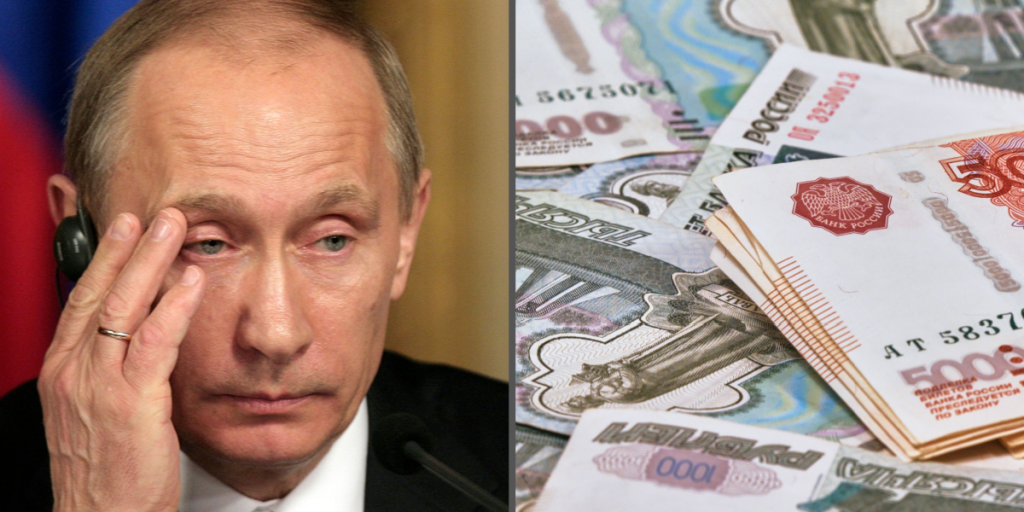“Devaluation is rising, costs are rising, and there is no access to affordable credit.”
Others are reading now
After the Soviet Union dissolved in December 1991, Russia’s transition to a market economy plunged millions into poverty.
The “shock therapy” reforms of the early 1990s caused the economy to shrink by nearly half, while hyperinflation destroyed household savings.
Food prices soared and wages stagnated, leaving many Russians struggling to survive.
President Vladimir Putin has frequently invoked those turbulent years to rally support for his policies, portraying himself as the leader who restored order and stability after the chaos of the Yeltsin era.
But more than three decades later, the country again faces economic turmoil.
Also read
Mounting pressure
Western sanctions and the enormous costs of sustaining the war in Ukraine have put unprecedented strain on Russia’s finances.
Inflation, devaluation and credit shortages are now threatening both consumers and industries.
Alexey Chadayev, a former adviser to the Russian parliament and an executive at a defence firm supplying UAV’s for the Russian army, warned that the country could be heading back to the economic despair of the 1990s.
“The real sector of the economy, again with the exception of those working in defence industry in one form or another, is in a very bleak situation because money has become expensive,” he told a Russian military blogger according to Express.
He added: “Devaluation is rising, costs are rising, and there is no access to affordable credit. Everyone is facing cash flow gaps, and we are seeing the return of barter deals, just like in the forgotten days of the 1990s.”
Also read
Cracks in defence industry
Even Russia’s defence sector — one of the few areas still benefiting from heavy state spending — is showing signs of strain.
Local media reported that Uralvagonzavod, the country’s largest producer of railway cars and its main tank supplier, plans to lay off around 10% of its workforce by February 2026.
The company will also halt recruitment, and in some divisions, job cuts could reach up to half of full-time staff.
Such measures point to growing difficulties within industries once considered shielded from economic shocks.
A grim outlook
Analysts warn that Moscow’s attempts to sustain a war economy while facing deepening isolation could push the country toward a severe downturn.
Also read
For many Russians, the prospect of returning to the financial instability of the 1990s — a period marked by hardship and uncertainty — is a haunting one.
Sources: BBC, Reuters, The Moscow Times, Express


